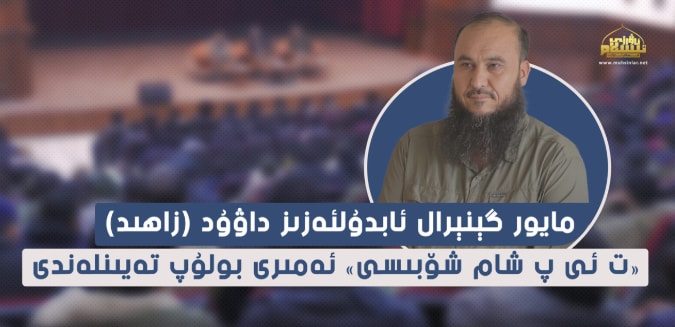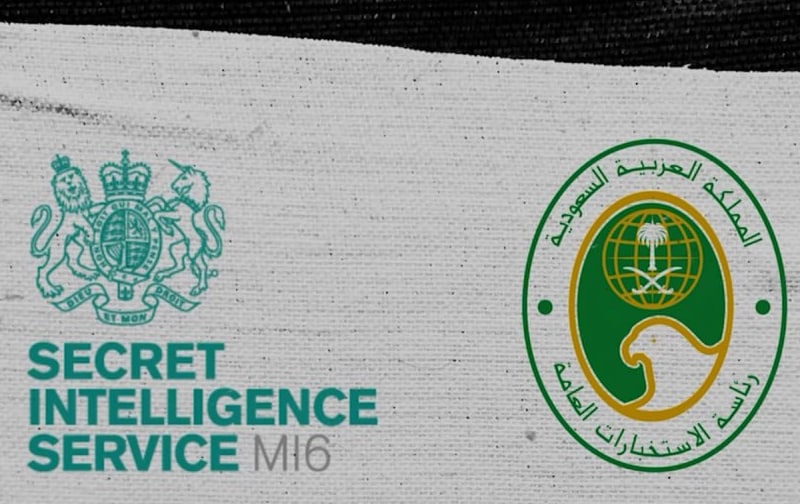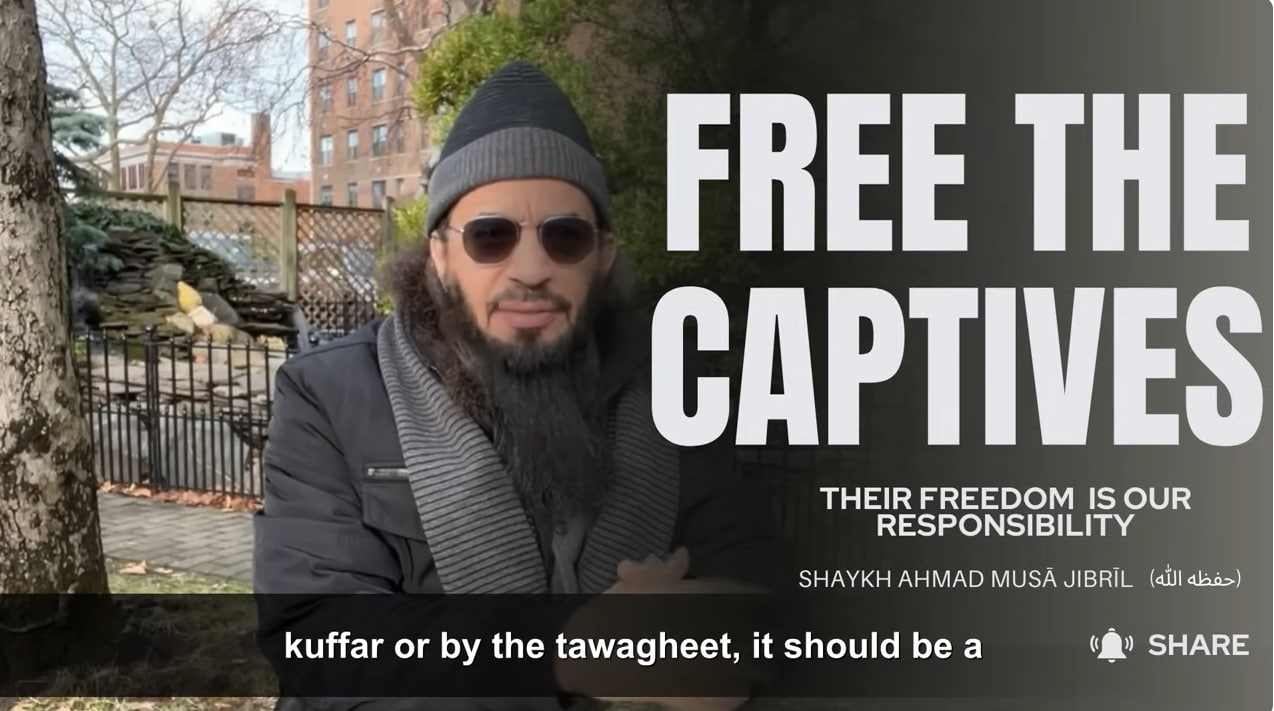The following report is a complimentary offering from MEMRI's Jihad and Terrorism Threat Monitor (JTTM). For JTTM subscription information, click here.
Siddhartha Dhar, a popular and well-known British ISIS fighter who calls himself Abu Rumaysah al-Britani, authored a guide for prospective immigrants to the Islamic State. The detailed publication includes chapters such as "Weather in the Caliphate," "Food in the Caliphate," "Transport in the Caliphate," "People in the Caliphate," "Technology in the Caliphate," and "Capitalism is Dead." Abu Rumaysah was an associate of Anjem Choudary and Abu Baraa in London and moved to Syria with his family in October 2014.[1] His November 2014 tweets boasting about evading British authorities were feted on Twitter by fellow jihadis and supporters.
The following is an overview of the guide's contents:
.jpg)
Purpose
Abu Rumaysah explains his intentions for writing this guide: "In a time where the whole world has literally gathered against the Islamic State, I felt it was neceaary to provide an alternative to life under the Caliphate, which was free from many of the distortions pushed out by mainstream media." He clarifies, "This book does not contain any information on how to perform acts of terrorism, nor does it provide any instructions on how to migrate to the Islamic State. It is simply my take on unravelling events that have transpired in the Islamic State's first year of governance." The book is dated May 16, 2015, and is 46 pages long. Abu Rumaysah writes the guide in the style of a travel guide.
Food
In this chapter Abu Rumaysah dispells previous media reports that claimed areas of the Islamic State were plagued by food shortages. He writes: "If you thought you would be living on stale bread and septic water then erase that culinary fib from your mind. Below are some of the most popular dishess served on the streets of the Caliphate, and some familiar snacks." The fighter goes into detail describing foods such as sheesh kebab, falafel, and shawarma in an appetizing manner. He emphasizes the fact that food can be cheaply obtained. Abu Rumaysah compares the food expereince to British staples in an effort to appeal to a British audience. In a section titled "Tea and cofee" he writes: "If you were worried about leaving behind your local Costa Cofee [a British cofee chain] then you will be happy to know that the Caliphate serves some of the best lattes and cappuccinos around. The milk is truly delightful - creamy and fresh. As for the tea then the distinctive pekoe leaves of Layalina are, at the moment, the frontrunners."
On ice cream he wrote: "Fluffy velvety, and sweet. If you want to treat yourself then indulge in this full fat delight all for less than 30 pence." Here the fighter is using the British currency as a frame of reference for his readers in the West. The fighter highlights that emmigrants will not be leaving favorite snacks behind: "Snickers, kit kat, Bounty, Twix, Kinder Surprise, Cadburys - yes , yes we have it all."
Abu Rumaysah covers all bases and also discusses the more nutritious aspects of food in the Islamic State: "The great thing about food in the Caliphate is its freshness. You can be sure that the vegetables you crunch down on basked gloriously in the sunshine before reaching your dinner plate. And what about olive groves. Yes, there are plenty of them and the pickles and rich oils that spring from them beat anything from your local Tescos [British grocery store] or Walmart.
"If nothing here tickles your taste buds then remember we have only scratched the surface; as more Muslims flock to the Caliphate from Europe, Asia, the Caribbean Islands and elsewhere you can be sure to find your mouth watering morsels somewhere. I cannot help but think that in the near future we will be eating curries and chow meins on the streets of Raqqah and Mosul."
The fighter also adds the fact that Muslims do not have to worry over whether food is halal: "Lastly another great perk about food in the Caliphate is that evertyhing is 100% halal. No squinting at the back of food packets looking for those dreaded 'E' numbers, alcohol additives or pork gelatine; all the meat here is thoroughly checked and approved for for consumption."
Weather
Abu Rumaysah reassures readers that the weather in this region is nothing that they have not previously experienced before. He says: "This really depends on where you are, but as it stands the Caliphate offers an exquisite Mediterranean climate that has all the makings of a plush holiday resort. Whether it is the sandy ruggedness of Barakah or the green hilly plains of Halab [Aleppo], wherever you are, I guarantee you will find the scenary truly breath-taking." He explains that winter can bring the same cold expereinces in most European countries. However he assures readers that the cold is not a concern: "Do not fret too much about it though, because the Caliphate will cushion the cost of heating your home and you will also get to enjoy the wonders of the renowened mazoot soba [heating oil]."
Transport
In this section the fighter praises the construction projects and the maintence of roads in the Caliphate over large swaths of land. He explains that at the moment the public can utilize buses and bright yellow taxis. He addes: "Private ownership is also a nice alternative, especially if you prefer to avoid the hustle and bustle of public transport.
"The most popular brand of car here is the South Korean Kia, and Hyundai, but you can find other models, just keep in mind that the Caliphate operates a left hand drive system. Chinese motorbikes are also very widespread, more so than cars, and are a great option if you are on a budget. You can pick up a brand new Honda Akkad or Part for around $500, or $300 second hand. Electric bikes are available but not that popular, one full charge will give you around 40 km riding time, which is not that great, but I guess the convenience of charging your battery for free on the Caliphate's electric grid offsets this."
The fighter muses on the future of transport in the Caliphate: "The natural progression for the transport network in the Islamic State has to be trains then ships and aeroplanes, but everythimg is on the table: zeppelins, hovercrafts, trams, microlites, cable cars or perhaps a new creation invented by a some witty entrepeneur. Manufacturing plants are probably also in the pipelines and will help the Caliphate become less dependent on foreign goods."
Technology
Abu Rumaysah begins this chapter by praising the tech skills of the media releases distributed by Al-Furqan, the ISIS media wing, and then discusses the impressive advances and innovations to be made in the warfare arena: "As long as the Caliphate continues to wage jihad, and it has to, then the creative juices of inventors will flow and lead to bold advances. The recent deployment of a civilian truck that transforms into a rocket launcher in the Battle of Baiji proves how effective war is in stimulating innovation. The natural progression for technology on the frontlines has to be, in my opinion, anti-aircraft artillery, and if the Caliphate is successful in producing something viable then it should be a real game changer. The Islamic State's deft use of media and hi-tech weaponry to further its aims also shows that Islam is not an enemy to modern technology, and in many ways it has propelled the Caliphate brand into something that is stylish and cool."
The fighter assures readers that the Caliphate is equipped with Western technology: "Inside the Islamic State you will have access to the usual gizmos such as laptops, mobile phones, and of course the internet. Keep in mind that mobile networks are still in the making, but apps such as Skype, Kik, WhatsApp and Telegram, to name but a few are great alternatives." He adds: "As far as the future is concerned, the renewable and non-renewable energy is one place where the Caliphate can move [in] leaps and bounds. Nestled in an energy hotspot, Islamic State scientists will, no doubt, think of innovative ways to tap into the vast amount of resources locked into their surroundings, including amongst others, wind, sunlight, fossil fuels, timber, earth minerals, metal ores, and fresh water; however, this is just one idea amongst a sea of others, and I would still advise keeping your eyes firmly on the battlefields for the real movers and shakers."
People
In this section the fighter boasts about the diverse demographics of the Caliphate, and how a plethora of skilled professionals have immigrated to the fledgling state: "If you thought London or New York was cosmopolitan then wait until you step foot in the Islamic State, because it screams diversity. In my short time here I have met people from absolutely every walk of life, proof that the Caliphate's pulling power is strong and tenacious. The country has also become a magnet for talent. It has been successful in recruiting skilled professionals that are crucial for state building. Scholars, judges, preachers, soldiers, doctors, data analysts, telecommunication experts, economists, mechanics, chefs, teachers, civil engineers etc. are just some examples that I can rattle off the top of my head, and are also real life examples of people I have physically met."
Abu Rumaysah brags about how harmonious life is in an Islamic society, which is a melting pot of different cultures. He contrasts this against the West, and argues that racial tensions would not arise in the state: "I cannot see a Baltimore riot springing up here anytime soon and that is a dead cert[ainty], not because those in charge will deal with matters with an iron fist, but because there is no blur between right and wrong. What I mean by this is that citizens are not hypocritically led to believe that all cultures can coexist, and then have this belief torn apart by the bigoted reality on the ground. Everyone is judge with the right law (which is Islam), and the dangers and impracticalities of multiculturalism are well and truly nipped at the bud."
Education
In this chapter the fighter delineates the structure and offerings of the education system in the Islamic State: "There are no cowboy academies here, and so whatever field you end up in keep in mind that you will need to reach certain benchmarks. This disclosure will, of course, be very comforting for Muslim parents who too want to take that plunge with their children and migrate to the Islamic State, and I hope it does act as a reassurance, because there is no better place to bring up your loved ones. Institutes are already springing up across the country offering courses on Arabic, maths, and science and astonishingly in Raqqah, less than a year from the announcement of the Caliphate, citizens now have the fantastic opportunity to study medicine." Abu Rumaysah explains the difference between the curriculums in Islamic State schools, and in those found in the West: "Another great thing about education in the Islamic State is the curriculum. There are no classes promoting homosexuality, evolution, music, drama, interfaith, and the rest of the rubbish taught in non-Muslim schools. Your child's delicate mind is well and truly protected in the Caliphate..."
"Capitalism is Dead"
In the final chapter Abu Rumaysah espouses the strengths of the Islamic State, and discusses the shortcomings and eventual demise of the West. He ends his guide with a threatening prophecy: "When we descend on the streets of London, Paris, and Washington the taste will be far bitterer, because not only will we spill your blood but we will also demolish your statues, erase your history and, most painfully, convert your children who will then go on to champion our name and curse their forefathers."
[1] See MEMRI JTTM, British ISIS Fighter Boasts About Outsmarting British Intelligence; Moves To Syria With Family, December 2, 2014.





